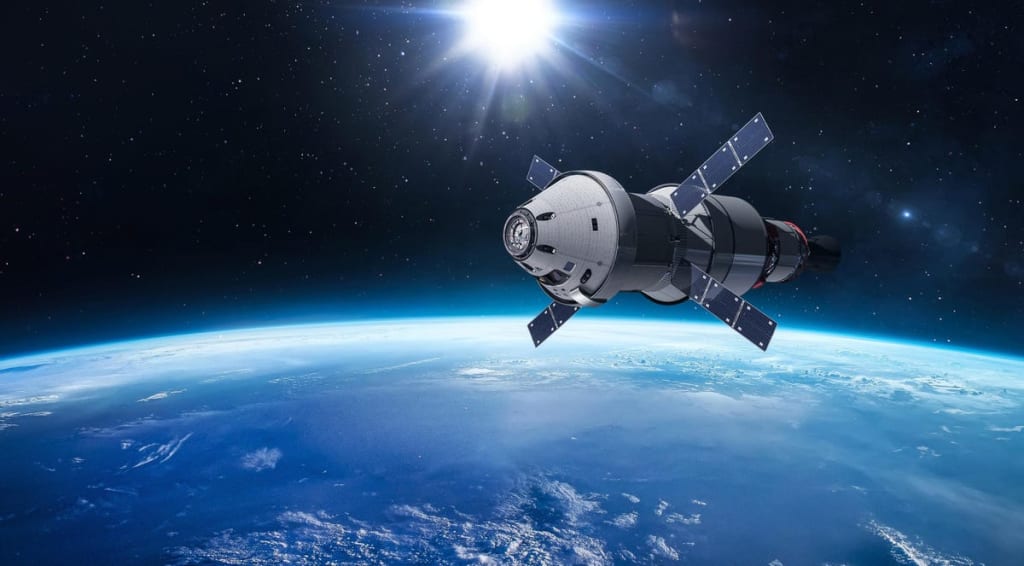Space exploration and the future of space travel
"Journeying Beyond Our World: The Past, Present, and Future of Space Exploration"

Space exploration has always been a fascinating topic for humanity. The idea of exploring the unknown has captivated us for centuries, and it's no wonder that space travel has become a major focus for scientific research and development. As we look to the future, there are many exciting possibilities in store for space exploration and the future of space travel.
The Past: A Brief History of Space Exploration
The history of space exploration dates back to ancient times when early astronomers gazed up at the stars and planets. However, it wasn't until the mid-twentieth century that space travel became a reality. In 1957, the Soviet Union launched Sputnik 1, the first man-made satellite, into orbit. This event marked the beginning of the Space Age and sparked a space race between the United States and the Soviet Union.
Over the years, both countries continued to make significant strides in space exploration. The United States landed the first humans on the moon in 1969, and the Soviet Union sent the first space station, Salyut 1, into orbit in 1971. Since then, space exploration has continued to evolve, with new technologies and discoveries paving the way for future missions.
The Present: Current Space Exploration Efforts
Today, space exploration is a collaborative effort between countries and private companies. The International Space Station (ISS), a joint effort between the United States, Russia, Canada, Japan, and several European countries, is a prime example of this collaboration. The ISS has been continuously occupied by astronauts since 2000 and serves as a platform for scientific research and experimentation.
In addition to the ISS, there are also ongoing missions to explore Mars and other planets in our solar system. NASA's Mars Exploration Program, for example, has sent several rovers to Mars to study the planet's geology, atmosphere, and search for signs of past or present life. Private companies such as SpaceX and Blue Origin are also making strides in space exploration, with plans to send humans to the moon and Mars in the near future.
The Future: Possibilities for Space Travel
As we look to the future, there are many exciting possibilities for space travel. One of the most promising developments is the idea of space tourism. Private companies such as Virgin Galactic and Blue Origin have already begun selling tickets for suborbital space flights, and it's only a matter of time before space tourism becomes a common occurrence.
Challenges and Risks: Despite the promise of space exploration, there are also many challenges and risks associated with it. One of the biggest challenges is the cost, as space missions require significant funding and resources. Additionally, space travel comes with many risks, including exposure to radiation and the potential for equipment failures or accidents. These challenges and risks will need to be carefully managed as we continue to push the boundaries of space exploration.
Technological Advancements: One of the key drivers of space exploration is technological advancements. From the development of new propulsion systems to the creation of advanced materials, technology is playing a critical role in making space travel more feasible and efficient. As we continue to make breakthroughs in areas like artificial intelligence, robotics, and 3D printing, we can expect to see even more advancements in space exploration and travel.
International Cooperation: As mentioned earlier, space exploration has become a collaborative effort between countries and private companies. This international cooperation has been critical in advancing our understanding of space and making progress towards new missions and discoveries. However, it's important to note that international cooperation also comes with challenges, such as navigating political and cultural differences.
Sustainability: Another important consideration for the future of space exploration is sustainability. As we look to establish permanent settlements on other planets or in space, we will need to consider how to create self-sustaining ecosystems that can support human life over the long term. This will require innovations in areas like agriculture, energy, and waste management.
Ethical Considerations: Finally, as we explore new frontiers in space, we will need to consider the ethical implications of our actions. For example, how do we balance the desire for scientific progress with the need to protect natural resources and ecosystems? How do we ensure that space exploration benefits all of humanity, and not just a select few? These are important questions that will need to be addressed as we continue to explore and expand our presence in space.
Another possibility is the development of space colonies. With advancements in technology, it may be possible to establish permanent settlements on other planets or even in orbit around Earth. These colonies could serve as research stations, manufacturing facilities, or even tourist destinations.
Finally, there is the idea of interstellar travel, the concept of traveling between stars. While this may seem like science fiction, there are ongoing efforts to make this a reality. NASA's Breakthrough Starshot program, for example, aims to send tiny spacecraft to the nearest star system, Alpha Centauri, within the next few decades.
Conclusion
Space exploration has come a long way since the early days of Sputnik and the Space Race. Today, space travel is a collaborative effort between countries and private companies, with ongoing missions to explore our solar system and beyond. As we look to the future, there are many exciting possibilities in store for space exploration, including space tourism, space colonies, and interstellar travel. The possibilities are endless, and the future of space travel is sure to be an exciting one.





Comments
There are no comments for this story
Be the first to respond and start the conversation.